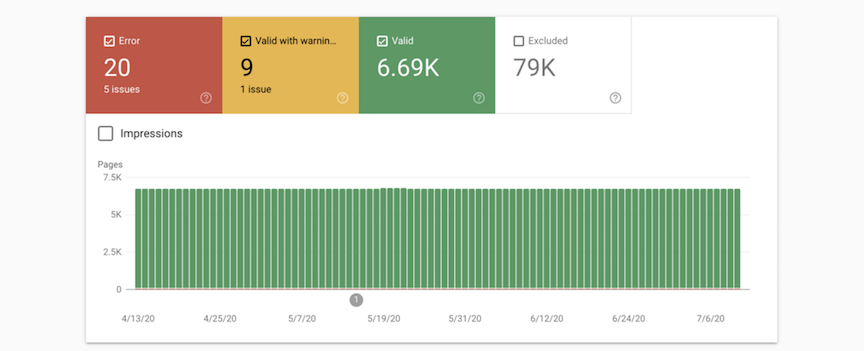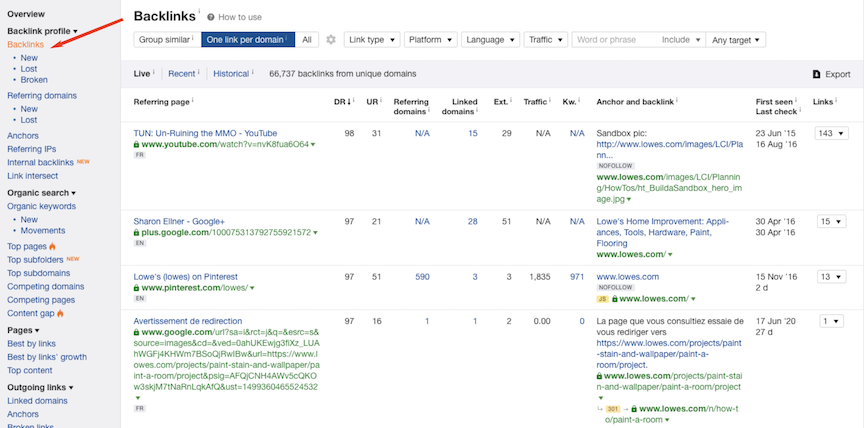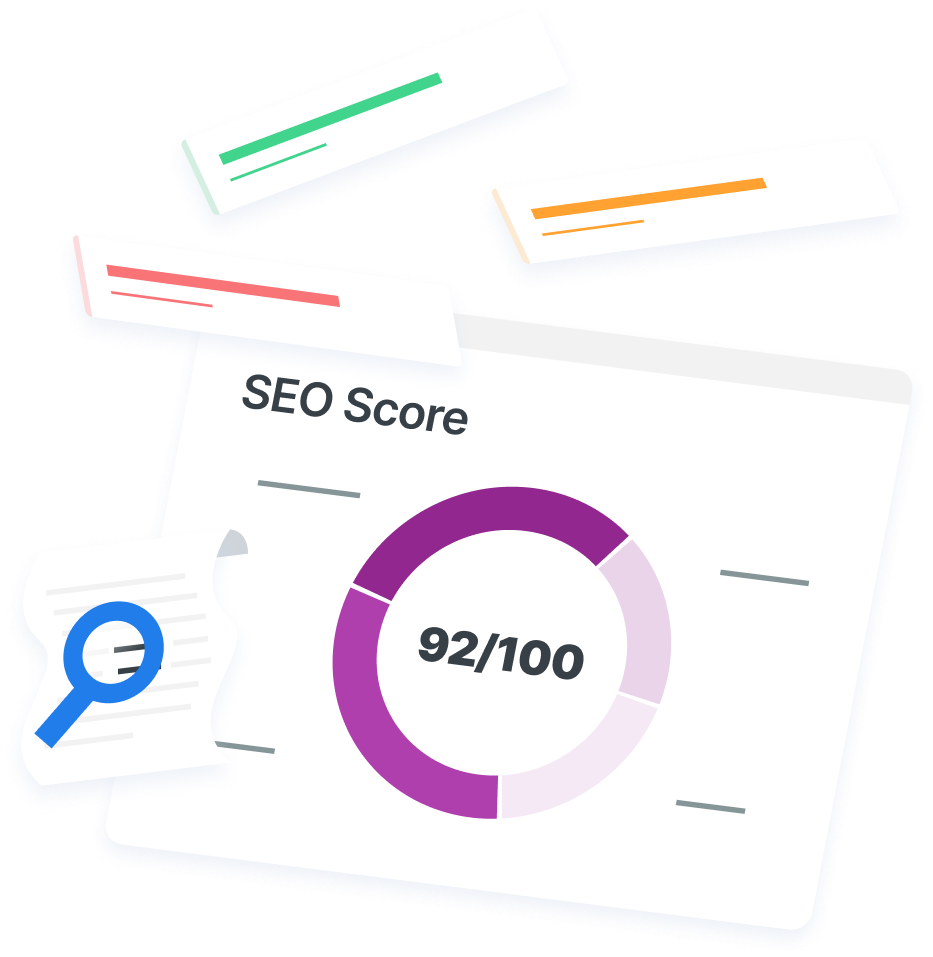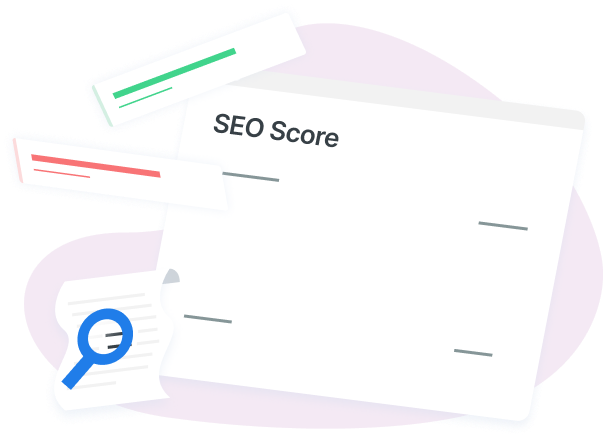-
 7 min. read
7 min. read
-
 Sarah Berry
Sarah Berry Web Marketing Consultant
Web Marketing Consultant
- Sarah Berry is a Google Analytics-certified Web Marketing Consultant at WebFX. She’s written over 400 articles on digital marketing, covering topics like SEO, CRO, and Amazon. When she isn’t polishing her Time Magazine Person of the Year Award, she’s spending time with her flock of ducks.
More than 200 different factors impact how your site ranks in search engine results. While improving all these SEO elements can be helpful, some ranking factors are more influential or foundational than others. In this post, we’ll discuss the most important elements of SEO.
These are the elements you should focus on if you’re just getting started, and you want to have the biggest possible impact on your SEO. Want to quickly check the essential SEO elements on your site? Our free SEO Checker tool provides you with an easy-to-read report.
Try the SEO Checker today!
The most important elements of SEO
In the sections below, we’ll discuss the most important SEO elements. We’ve divided them into two categories — on-page SEO and off-page SEO elements.
- On-page SEO refers to elements on your website that you can control
- Off-page SEO refers to factors outside your website that you can’t directly control
On-page SEO elements
Here are the most important on-page SEO elements or on-page SEO ranking factors:
1. Crawlability and indexability
If Google can’t crawl and index your site, you won’t show up in search results, so you need to get your crawlability and indexability right. Google constantly crawls the web using bots to discover pages. So, crawlability refers to Google’s ability to find your content.
Google’s crawlers discover content through links. After crawling content, Google’s crawlers send data back to Google so that it can analyze the page and add it to its index. Only indexed pages can show up in search results.
Some of the best ways to enhance your site’s crawlability and indexability are:
- Upload a sitemap: A sitemap is a directory of your site with links to your most important pages. Maintaining up-to-date XML and HTML sitemaps helps Google find your content.
- Add internal links: Adding links between your pages is another way to help Google discover your content.
- Check your robots.txt file: In a txt file, you can tell crawlers which pages you want them to crawl. Make sure that your robots.txt file is giving crawlers the right information.
You can see which of your pages are indexed using the Coverage report in Google Search Console. Here’s an example of what the report looks like: 
2. Content quality
Google has said that creating high-quality content that gives users the information they’re looking for is one of the most important elements of SEO. Google wants to rank high-quality content at the top of its results pages, as this provides its users with a better experience. Make sure that your pages provide accurate, useful information about topics and that users get what they expect when they click through to your page.
The following tactics may cause Google to interpret your content as low-quality or even spammy:
- Duplicated content
- Automatically generated content
- Content with little substance
- Content unnaturally stuffed with keywords
- Doorway pages
3. Keyword usage
Sites used to be able to rank by stuffing their pages full of keywords to the point that they were difficult to read. Now, however, this practice can hurt your rankings significantly. Although search engines can increasingly look beyond keywords to understand what a page is about, keyword usage is still one of the most crucial SEO elements.
You should include your target keyword in your page’s title tag, H1 heading, and meta description. Use it several times throughout your content as well and aim to include it once in the first 100 words or so. These aren’t hard-and-fast rules, but they’re good guidelines to follow.
The most important thing is to make sure your keywords sound natural in the copy and enhance rather than detract from the user experience.
4. Search intent
The search intent of a given keyword is what the user wants to accomplish by searching it. It’s important to understand the search intent of each keyword you target. Search intent is clearer for some keywords than others.
To determine the search intent for a keyword, search it on Google and look at the top results to see what needs they fulfill. There are various types of search intent, including:
- Informational: The user is looking to learn something. “When is the next full moon?” is an example of an informational search.
- Navigational: The user wants to find a particular page. If someone searches “YouTube,” for instance, they probably want to go to YouTube’s website.
- Transactional: The user wants to make a purchase. “Buy running shoes online” is a transactional search.
5. E-A-T
E-A-T stands for expertise, authoritativeness, and trustworthiness. Demonstrating E-A-T is important for ranking well. It’s especially important if you run a Your Money or Your Life (YMYL) page — a page that may impact someone’s health, financial well-being, or happiness. Let’s breakdown each part of E-A-T:
- Expertise: The author of a piece of content should have some expertise in the content topic. For some subjects, such as healthcare, the author should have formal expertise. Other topics require only day-to-day experience with the topic.
- Authoritativeness: Authoritativeness refers to the overall reputation of your site. Links and shares from well-known sites and people are the best ways to demonstrate authoritativeness.
- Trustworthiness: People should trust your site or business. Positive reviews, accurate information, and adequate website security all demonstrate trustworthiness.
Off-page SEO elements
The most important off-page SEO elements include:
6. Backlinks
Backlinks are links from other sites to yours, and they’re one of the most important SEO elements. Google considers both the quantity and quality of your backlinks, so, ideally, you want a large number of links from high-authority sites. While you can’t directly control who links to your site, you can use various methods for improving your backlink profile:
- Create high-quality content: Create content that others want to link to on their pages. More people will link to your site if doing so adds substantial value to their page.
- Conduct outreach: Look for pages related to your topic. Then, email the author and suggest that they link to your page. They might want to, for example, replace a broken link with a link to your page or add your page to a list of resources.
- Write guest posts: Write a guest post for another website and link to your site in your post. Make sure the site is authoritative and relevant to your content.
Avoid link building techniques that Google views as spammy, such as buying links and linking to your site in comments on other websites. You can check your backlinks with tools like Google Search Console, Ahrefs, and SEMrush. Here’s an example of a backlinks report from Ahrefs: 
7. Social signals
While social media shares aren’t a direct ranking factor, getting more shares can indirectly boost your SEO. The more people share your posts, the more likely you are to get backlinks. And, social shares lead to increased traffic, which Google views as a positive signal.
How can you encourage people to share your content on social media? Here are a few ideas:
- Share your content from your business’s social media accounts
- Build a social media following by posting regularly
- Add social sharing buttons to your website to make it easy for people to share your content
- Write about topics that are trending on social media (and relevant to your business)
- Write attention-grabbing, share-worthy headlines
Boost your SEO performance with WebFX
If you want to improve your rankings in Google and other search engines, you need to ensure your site has the most important SEO elements in place. WebFX can help with this! Just head over to our free SEO checker tool and input your website’s URL.
You’ll get a free report on your site’s SEO performance and recommendations for improving it. For help making the recommended improvements and boosting your search engine rankings, request a free quote from us. Our team of more than 500 digital marketing experts would be happy to help!
-
 Sarah Berry is a Google Analytics-certified Web Marketing Consultant at WebFX. She’s written over 400 articles on digital marketing, covering topics like SEO, CRO, and Amazon. When she isn’t polishing her Time Magazine Person of the Year Award, she’s spending time with her flock of ducks.
Sarah Berry is a Google Analytics-certified Web Marketing Consultant at WebFX. She’s written over 400 articles on digital marketing, covering topics like SEO, CRO, and Amazon. When she isn’t polishing her Time Magazine Person of the Year Award, she’s spending time with her flock of ducks. -

WebFX is a full-service marketing agency with 1,100+ client reviews and a 4.9-star rating on Clutch! Find out how our expert team and revenue-accelerating tech can drive results for you! Learn more
Try our free SEO Checker
Boost your site’s search performance with our free SEO Checker. Analyze your website for optimization tips on titles, headers, content, speed, and more. Get a free report now to enhance rankings on Google, Bing, Yahoo, and beyond!



How Is Your Website’s SEO?
Use our free tool to get your score calculated in under 60 seconds.
Try our free SEO Checker
Boost your site’s search performance with our free SEO Checker. Analyze your website for optimization tips on titles, headers, content, speed, and more. Get a free report now to enhance rankings on Google, Bing, Yahoo, and beyond!





